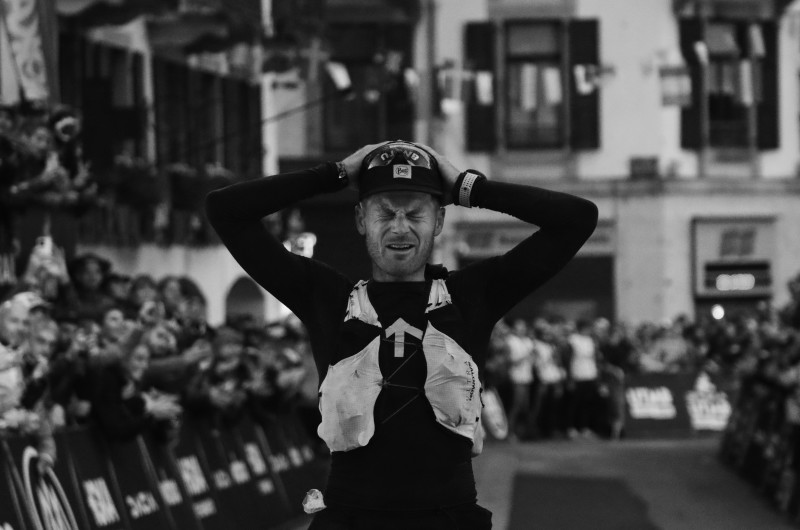
Christian's headline numbers
Christian's strategy
Fueling
Carbohydrate is the main fuel you burn when racing. Failing to fuel properly is a leading cause of underperformance in longer races.
Christian chose to fuel predominantly with solid foods, as he practises this frequently in training, and it helps him avoid any ‘taste fatigue’ he associates with using gels or carb drinks. His plan was to take an energy bar (either 45g or 48g carb) every 30 minutes, interspersed with some homemade rice balls, Cola Cola and some Ketone shots. Christian’s previous career as a professional cyclist means taking large amounts of carbohydrates comes naturally after years of training his gut, and this was reflected in his subjective gastrointestinal comfort rating of 10 (out of 10) whilst averaging ~86g per hour for 19.5 hours.
Hydration
Taking on board an appropriate amount of fluid and sodium is essential to maintaining blood volume and supporting the cardiovascular effort needed to perform on race day.
Whilst the absolute amount of sodium and fluid consumed per hour is important, it’s critical to consider these in relation to each other. This is known as 'relative sodium concentration' and it’s expressed in milligrams per litre (mg/L). How much sodium you’re taking in per litre of fluid is more important than the absolute amount taken in per hour.
Sweat sodium concentration (mg/L) is largely genetically determined and remains relatively stable. Knowing how salty your sweat is enables you to replace a good proportion of your sweat losses, which can range from 200-2,000mg/L.
Given Christian’s losses are High (1,331mg/L), nailing his hydration strategy remains important, even when it’s Cold.
Learn moreChristian adapted his hydration strategy on-the-fly to reflect the temperatures being much lower than expected (average ~7℃, dipping below 0°C at times). He began peeing quite frequently in the beginning, which was likely caused by overdrinking relative to the amount he was sweating, so he reduced his water intake accordingly. With a moderate amount of sodium in his energy bars, along with primarily drinking PH 1500, Christian’s average relative sodium concentration was slightly higher than planned considering his sweat sodium concentration of 1,331mg/L. In future, he may want to consider switching out the occasional PH 1500 for a PH 1000 in warmer races where he’ll likely be drinking more, to avoid any negative side effects of oversalting.
How Christian hit his numbers
Here's everything that Christian ate and drank on the day...
Christian's weapons of choice
Final thoughts
Christian's full stats
Data Confidence?
There is some confidence in the quantities and brands of products consumed but the data may lack specifics (e.g. volumes specific flavours). A high number of estimations have been made and the room for error is moderate-high. There may also be the possibility that some intake has been grossly over- or under-estimated.